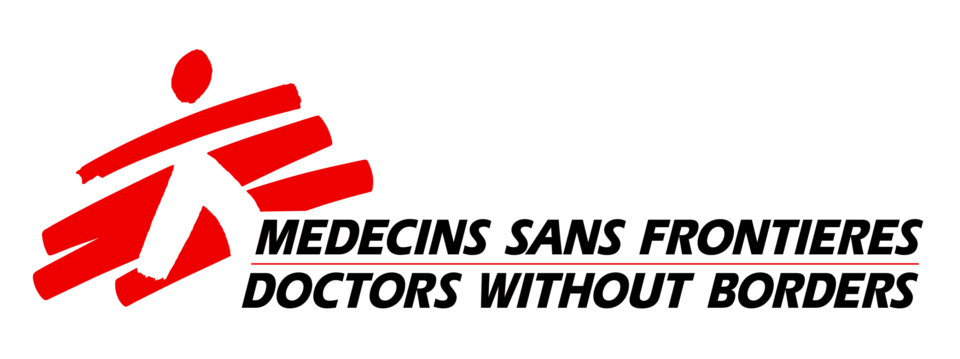“I started vomiting in the wee hours of one Monday morning and never suspected that it was cholera,” says 31-year-old Winfilda Shonhai from Buhera district in Manicaland province. Her family was hit by cholera, and nine family members were admitted to Zangama clinic in Buhera, where cholera has been ravaging the community since the second wave of cholera in August this year.
Despite her having heard of cholera, Winfilda never imagined the disease infecting the whole family.
At first, the family members were reluctant to visit the clinic. Still, when the situation deteriorated, after continuous vomiting and watery diarrhoea, Winfilda’s husband sought help and rushed the family to Zangama clinic, 20 kilometres away from their village. Upon arrival at the clinic, her husband was also admitted as he started showing signs and symptoms of cholera. The whole family was admitted in the Cholera Treatment Centre (CTC) set up by Doctors Without Borders (MSF) at Zangama Clinic, with each member at a different stage of recovery.
“I suspect we got cholera from one of the family members who had visited another village,” says Winfilda. “To get the whole family infected was the worst nightmare .”
“I was the first one to recover and I am happy my family members are recovering. We almost died, the pain was surreal, but the care and support we got from the nurses resuscitated us,” narrates Winfilda.
Winfilda is one of 1,127 confirmed cholera cases in Zimbabwe since February 2023. As of 7 November 2023, there were 6,685 cholera cases recorded in Zimbabwe, 6,406 recoveries, 48 confirmed deaths, and 136 suspected deaths[i] across the country. After the first case was reported in Chegutu town in February 2023, the disease started spreading across the country’s ten provinces, including in Manicaland, where MSF is currently supporting in Buhera. Since the first case was reported, MSF has been supporting the Ministry of Health and Child Care (MoHCC) in combating the cholera outbreak in Chegutu, Beitbridge and Harare with technical support in logistics, provision of treated water and health promotion.
MSF teams are now supporting MoHCC in the fight against cholera in the Buhera district, where the main drivers of the disease have been a lack of safe water and the use of river water, which is potentially contaminated.
“The MSF team in Buhera is providing technical support in proper construction and layout of the cholera treatment centres (CTCs), providing nursing mentorship at different clinics, logistical support, case management, strengthening infection prevention and control measures and risk communication and community engagement and health promotion” explains Kuziwa Kuwenyi, MSF Country Medical Representative.
So far, in Buhera, MSF has set up six cholera treatment centres and provided cholera beds at MoHCC clinics. MSF also donated basic medical supplies like ringer's lactate (used to treat dehydration and restore fluid balance in the body), oral rehydration solution (ORS) and cholera beds to MoHCC in Buhera.
“When we intervened, the case fatality rate currently stood at 4.4%, which was high (according MOH) Buhera daily cholera sitrep of 10 October 2023). There is need for involvement of all stakeholders to reach below 1% case fatality rate in Buhera which is acceptable,” adds Kuwenyi.
The team is also strengthening health promotion activities to increase awareness of the hygiene measures for prevention and control of the disease.
“We are conducting awareness sessions about cholera for all people in the district especially where there are gatherings and also targeting the Apostolic sect members, who do not seek medical attention when infected with cholera”, says Onwell Nyekete, MSF Health Promotion and Risk Communication and Community Officer in Buhera.
“The sessions cover important topics such as what cholera is, how it spreads, what the preventative measures are, and how to detect the symptoms so they can report it. This is crucial information that can help people take action if they suspect they, or someone they know, might have cholera.”
MSF has been working in different parts of the country since 2000, focusing mainly on HIV/ TB and Non-Communicable Diseases (NCDs). The organisation also provided emergency support during 2008, 2018 cholera outbreaks in Buhera and Harare, respectively.
[i] Statistics are according to the Ministry of Health and Child Care sitrep as of 07 November 2023
Distributed by APO Group on behalf of Médecins sans frontières (MSF).
Latest Stories
-
Joy FM Prayer Summit for Peace ends in electrifying worship and prayer
41 mins -
The Conscience of Leadership: A call to President Akufo-Addo on Ghana’s environmental devastation
1 hour -
Ghanaian youth unaware of their right to hold politicians accountable – Youth Bridge Foundation
2 hours -
Judge delays Trump sentencing for a third time
2 hours -
2024 WAFCON: Ghana drawn against defending champions South Africa in Group C
3 hours -
Photos from DW-JoyNews street debate on ‘galamsey’
4 hours -
Mimmy Yeboah: Blending heritage with global sophistication, confidence redefined through couture
4 hours -
100 Most Influential People Awards 2024: Brain Hill International School’s Director Mary Anane Awuku honoured
4 hours -
Akufo-Addo commissions 97-km Tema-Mpakadan railway line
4 hours -
Majority requests recall of Parliament
5 hours -
Kanzlsperger and Professor Quartey support WAFA with medical Donation
5 hours -
Gideon Boako donates 10 industrial sewing machines to Yamfo Technical Institute
5 hours -
‘Golden Boy’ Abdul Karim Razak honored at WAFU-B general assembly
5 hours -
Buipewura Jinapor secures Vice Presidential position in National House of Chiefs with record votes
5 hours -
2024 election: I want results to come out like ‘milk and honey’ – Toobu
5 hours

